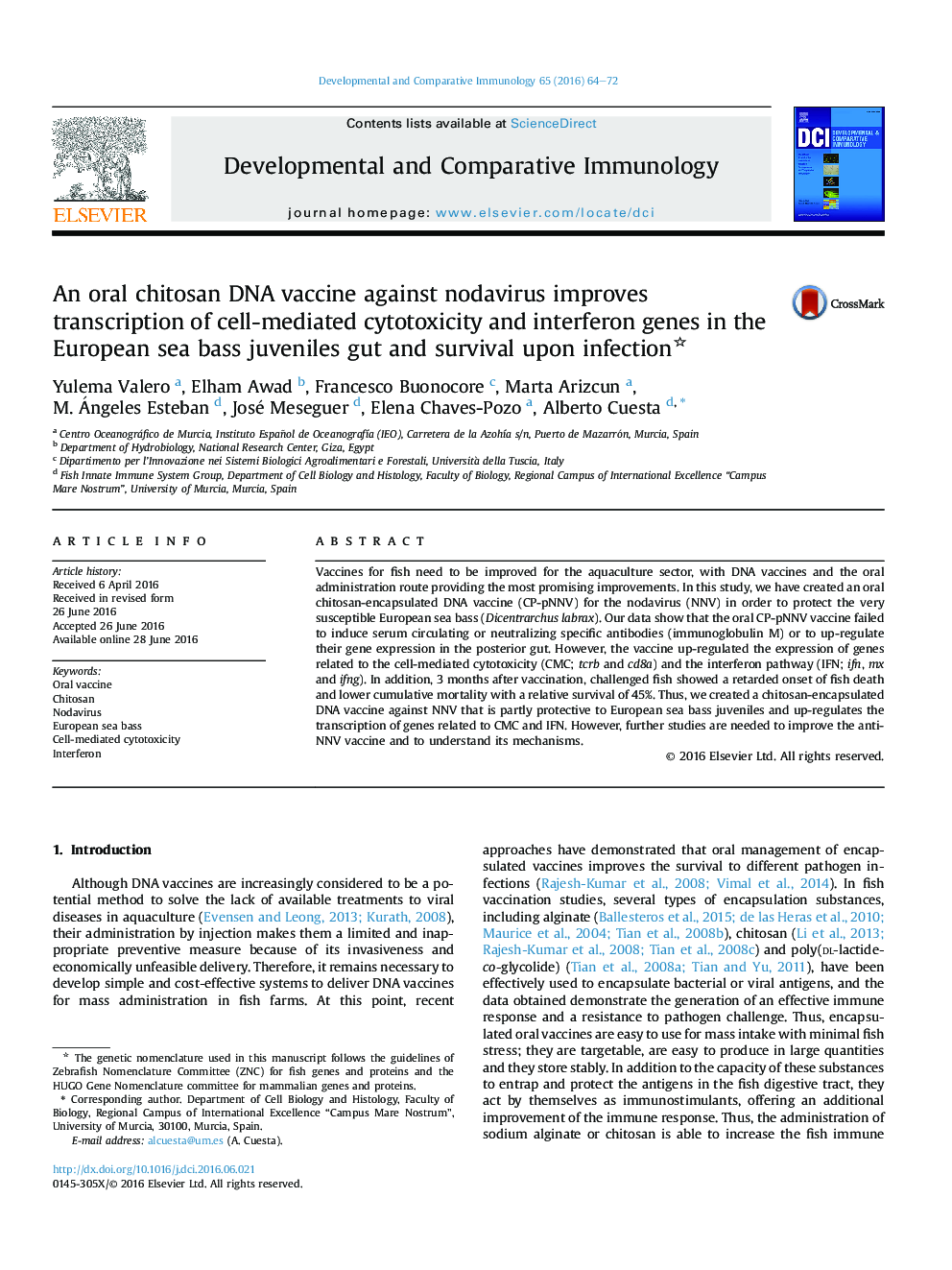| Article ID | Journal | Published Year | Pages | File Type |
|---|---|---|---|---|
| 2428740 | Developmental & Comparative Immunology | 2016 | 9 Pages |
•Oral DNA vaccine against NNV up-regulates transcription of genes related to CMC and IFN.•Specific antibodies are not induced by the encapsulated oral DNA vaccine.•Encapsulated oral DNA vaccine against NNV improves sea bass survival upon infection.
Vaccines for fish need to be improved for the aquaculture sector, with DNA vaccines and the oral administration route providing the most promising improvements. In this study, we have created an oral chitosan-encapsulated DNA vaccine (CP-pNNV) for the nodavirus (NNV) in order to protect the very susceptible European sea bass (Dicentrarchus labrax). Our data show that the oral CP-pNNV vaccine failed to induce serum circulating or neutralizing specific antibodies (immunoglobulin M) or to up-regulate their gene expression in the posterior gut. However, the vaccine up-regulated the expression of genes related to the cell-mediated cytotoxicity (CMC; tcrb and cd8a) and the interferon pathway (IFN; ifn, mx and ifng). In addition, 3 months after vaccination, challenged fish showed a retarded onset of fish death and lower cumulative mortality with a relative survival of 45%. Thus, we created a chitosan-encapsulated DNA vaccine against NNV that is partly protective to European sea bass juveniles and up-regulates the transcription of genes related to CMC and IFN. However, further studies are needed to improve the anti-NNV vaccine and to understand its mechanisms.
Graphical abstractFigure optionsDownload full-size imageDownload high-quality image (128 K)Download as PowerPoint slide
